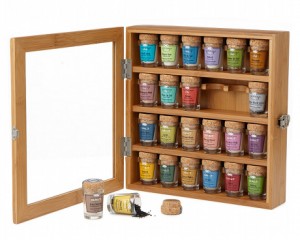Local, Organic, Artisanal…What It All Means & How To Use It
 About eight years ago, the hot buzz word in food was “artisanal.” Previously reserved to describe a skilled craftsman of a particular trade, savvy marketers latched onto this word and attached it to every bread, cheese and slightly different food item on menus and in stores across America. Now calling something “artisanal” seems passe’ or almost silly.
About eight years ago, the hot buzz word in food was “artisanal.” Previously reserved to describe a skilled craftsman of a particular trade, savvy marketers latched onto this word and attached it to every bread, cheese and slightly different food item on menus and in stores across America. Now calling something “artisanal” seems passe’ or almost silly.
Today’s big buzz words are “Local”, “Fresh” and “Sustainable.” I’d like to add “the stuff our grandparents made and ate” to that list, but it’s not a word. Still, we do need a word or phrase to describe the growing interest in canning, pickling, fermenting and meat processing that harkens back to our grandma’s dusty, musty root cellar filled with jars of would be science experiments fit for a horror movie. Sorry Grandma! But back to Fresh & Local…
So what does it all mean and how do we make sure it’s meaningful? QSR Magazine recently published a great article on this topic entitled “Buzzwords, Defined” It’s worth a read to clarify the words you are using and guarantee you are differentiating your brand in the direction you and your customers want. For instance, “local” for some is within a 30 mile radius, but is loosely define by the USDA as within a 400 mile radius! That’s enough to drive the length of Vermont twice and still have some to spare. Does that feel local?
Like any marketing campaign (and don’t fool yourself, this IS marketing) an owner needs to be clear on their goals, vision and purpose. Ultimately, your business still has to control costs and make money. When you go “Local,” “Sustainable,” or even “Artisanal” you need to ask yourself some questions. Who do you want to work with? What’s your budget? How many “local” ingredients can your budget afford and which vendors get priority? Is it the meat vendors or produce vendors? How will you highlight who they are, what they do and WHY it all matters. How do you educate your customers? And here’s the loaded question….Do your customers care? The answer isn’t always yes and then the question you need to ask yourself is why do you? A restaurant is not a cause, it’s a business. Be careful not to turn your business into your cause or you might just end up with neither. Control costs first! If you do, you’ll always have money left over to support whatever cause you like!

